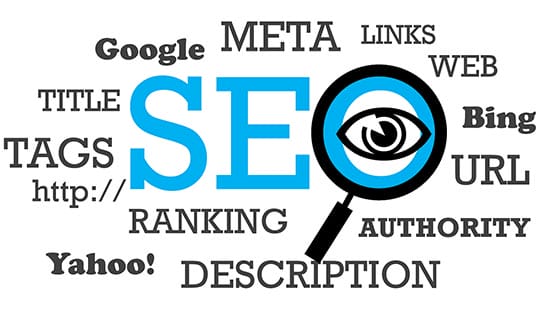The idea of making use of website analytics can be intimidating, especially to first-time site owners. Data analysis just sounds menacing, especially if you don’t know what to expect. Lucky for us, website analytics are quite straightforward. With a little bit of self-education, it easy to interpret and leverage to our advantage.
Whether you are a site owner and are curious about why you should start implementing a sound data-based approach to your strategy, or are getting your first site off the ground and want to make sure you’re maximizing your chances for success, below are some of the reasons why analytics are key.
It’s integral to improving user experience

If you are trying to do business online, you’ve likely already realized truism number one about making a go of it on the world wide web: competition is fierce. The web means big opportunities, but it also means fierce competition. In many important respects, you’re competing with the world. The most important implication here is that people have options.
If a user doesn’t like your site, or if a competitor is better at keeping people engaged, and moving them through the checkout process more efficiently, you are losing market share. People tend to stay on a website for 15 seconds before deciding they aren’t thrilled. That is where analytics comes in. How far through the check-out process do your customers get before they decide to navigate away? What do you need to do to ensure they stay on track? These are questions analytics can help you answer.
Recommended for you: Everything You Need to Know About Link Building and SEO.
Familiarize yourself with your visitors

You can get a good idea of who your site users are by monitoring your social media and keeping track of the location information that appears alongside blog comments. But to truly know your customers/users, you need to look at the data.
Analytics will help tell you who your visitors are based on age, gender, geographic location, and their other areas of interest. Once you have this information about your users, you can tailor your site content and multimedia to match their interests. Without a data-driven approach, you’re throwing darts in the dark, and will never truly understand what makes your users tick.
It is an important part of SEO strategy

SEO is certainly about understanding how the algorithms rank your site and content. But it is also about knowing what you’re doing wrong, and where your efforts are lacking. You need a sound SEO strategy to make sure you are converting as much of that organic traffic as possible. But you also need to know what people are actually searching when they happen upon your site.
Having website analytics lets you determine what your visitors and target demographics are interested in so that you can apply those SEO strategies to content that is going to resonate with them. Analytics also provides you with information on your backlinks (i.e. which sites are linking to content/pages on yours). This is more important SEO information you can use to tailor your content.
Analytics lets you know where you should be spending your money

Budgeting and investing for growth are two of the most important aspects of any business – online or otherwise. Big businesses pay exorbitant amounts of money to data analytics companies to know more about their customers and more about the market so that they can make the most well-informed marketing decisions possible.
On a smaller, but still meaningful scale, this is what website analytics does for your business. It lets you know where you should be directing your advertising dollars; which advertising and marketing channels are generating the most traffic for your business (and, therefore, which to focus on); and the kind of content that people are engaging with elsewhere and what kind of multimedia you need to include more of.
Best time to post updates and new blog content

Web analytics also gives you the necessary insight into the browsing habits of your users/customers. This is particularly important when it comes to when to post. When to release a new marketing campaign or a new blog post is as much about timing as it is about quality.
According to Baljot Saral, Founder of Web Sharx,
“Analytics data plays a vital role in determining whether a website should be re-designed or not. If more people are visiting your site but exiting after only viewing one page, it is a sign that user experience is not that great. In such a case, you should consider redesigning your website to improve user experience and reduce the bounce rate.”
You may also like: How to Boost SEO Results for a Higher Return on Investment (ROI)?
Final Words

The bottom line with analytics is it provides your insight into the mind of the market. Without that insight, you are simply hoping that what you’re doing is going to result in revenue. Knowledge is power, and when it comes to running an online business, it is page views and potential revenue.



